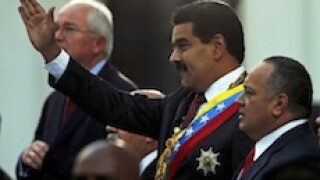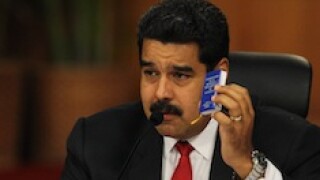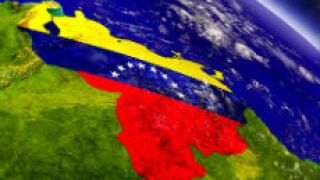Venezuela
-
As bondholders await some kind of communication on overdue coupon payments from Venezuela, PDVSA and Electricidad de Caracas, Standard & Poor's has said it is “uncertain” about oil company PDVSA’s ability to pay forthcoming bond maturities.
-
The International Swaps and Derivatives Association (ISDA) on Wednesday published a protocol that limits the scope of legacy credit default swaps referencing Venezuelan debt to obligations not restricted by recent US sanctions on the country.
-
Venezuela replaces the dollar with the renminbi as the quoting currency for its oil exports, the People’s Bank of China says bankers are confident about the Chinese economy, and the Shenzhen-Hong Kong Stock Connect sets a new record in turnover volume.
-
Prices in Venezuela and PDVSA bonds remained stable in the secondary markets this week, despite US sanctions on new debt issuance, as bondholders appear none the wiser as to the next step in the country’s economic crisis.
-
Fitch downgraded Venezuela by three notches on Wednesday, saying that the imposition of US government sanctions on the country further reduced its financing options.
-
Bonds issued by Venezuela and its state-owned oil company PDVSA recovered ground after US president Donald Trump issued an executive order prohibiting the trading of new debt issued by the entities.
-
Venezuela’s bond market access is already negligible. If market participants want to take a moral position, they need to think about more than just new issues.
-
Venezuela and PDVSA bonds regained some ground on Thursday as reports that the US would implement a blanket ban on trading the securities appeared to be exaggerated. But the bonds remain near all-time lows as the market weighs up the possibility of US sanctions against the crisis-ridden nation.
-
Some EM bond investors said that they were interpreting the drop in Venezuelan bond prices on Wednesday as a buying opportunity, saying that it was unlikely that the US would block all trading in the securities.
-
Credit Suisse’s decision to ban trading in certain Venezuelan bonds is understandable, but ultimately raises more questions than it answers.
-
Latin American development bank Corporación Andina de Fomento (CAF) raised $1.25bn of three year bonds on Tuesday, with more than half of the orders coming from central banks and official institutions.
-
South American development bank Corporación Andina de Fomento (CAF) is set to price a dollar-denominated benchmark bond on Tuesday less than two weeks after losing its only negative outlook.











